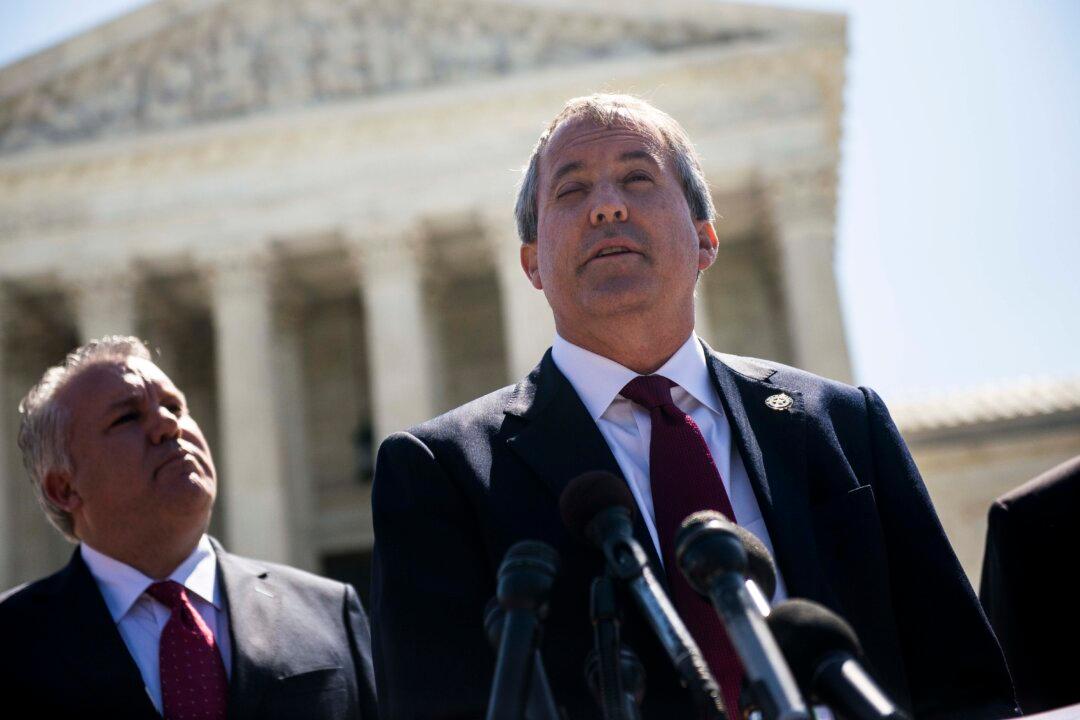Texas Attorney General Ken Paxton says that five additional states and territories have joined its lawsuit against Google, which alleges antitrust violations and deceptive acts by the technology behemoth.
Attorneys general from Alaska, Florida, Montana, Nevada, and Puerto Rico joined the multistate lawsuit, led by Texas, that originally was filed by a coalition of 10 states. Paxton’s office filed an amended complaint (pdf) on March 16, reflecting the changes.




